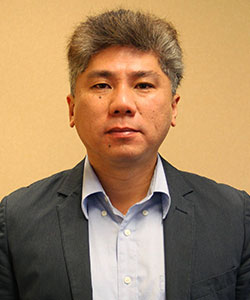1. When was it that it was realised that such a study needed to be conducted on the people contracting the Delta variant?
Back in April 2021, when the Delta variant started to spread globally, there had been anecdotal reports that it may cause less chemosensory losses than the original variant, which we thought was quite interesting and relieving but requires objective confirmation. Around the same time, the vaccine had also been widely available which can significantly reduce the disease severity, reduce hospitalization or death. There was also an assumption and hope that vaccination can reduce olfactory losses due to COVID-19, but again that required confirmation. Around that time, we started to work on a COVID-19 screening project and have been collecting patient data, so we decided to perform an interim data analysis in December using the data that we had collected thus far during the Delta surge.
2. The loss of taste and smell after contracting the Delta variant of the coronavirus was pretty prevalent. But why is it that this loss continued for another six months after being COVID-free?
This is something we still don’t know a lot about, and more research is needed to answer that.
3. Kindly brief us on the patients who have been identified with this issue during the study. What was their condition like during their contraction? Were all of these severe cases?
Among all the patients, only one was hospitalized, but he/she actually did not present with ongoing chemosensory losses. So majority of these cases were considered mild by CDC definition. All of them have reported some other symptoms during their COVID-19 infection period, some fewer some more.
4. So, can we assuredly state that COVID vaccinations are no alternative to the chemosensory losses which these patients have encountered?
No, we only showed that vaccinated patients had a very high prevalence of chemosensory losses. We don’t know whether vaccination reduces the severity/duration of the losses. It is only safe to say that vaccination cannot completely protect chemosensory losses from COVID-19.
5. There have been instances where the patients themselves are not aware of their loss. Kindly explain this scenario.
Yes, it is common for patients or even the general population to not be aware of their losses, especially when the losses are mild. In analogy, think hearing loss.
6. Like in any other study, there must be some limitations you might have encountered during your interaction with the patients. Kindly throw some light on it.
This is a cross sectional study that everyone is only tested once, or one snapshot in their disease progression. We don’t know how long these losses last, or how people recover from losses.
7. With Omicron and thereafter the BA.2 subvariant picking up, have there been any chemosensory losses noticed in their patients?
There have been studies reporting that Omicron and its subvariants may result in chemosensory losses, but again based on self-report. I think we still need objective testing to confirm that, which is ongoing in our research effort.
8. How will this study help in dealing with further variants that might crop up in the future?
I think it sets up a baseline so that the impact of future variants can be monitored based on.
9. Besides the chemosensory losses, were there any other issues that cropped and stayed for a long time without the patients’ being aware of them?
We are not experts on the broad and long term impact on COVID-19. Just for example, we know that COVID-19 may increase the risk of cardiovascular or kidney disease. This risk is not something a patient is actively aware of.
10. What are the remedial measures which can be taken to get the chemosensory loss back once the patient is COVID free?
This is something we still don’t know a lot about, and more research is needed to answer that. One of them is olfactory training, to try to sniff and smell common household odors multiple times daily.




















